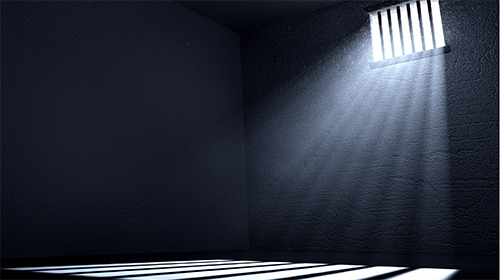
It's a short walk from my hotel here in Cape Town to the waterfront. From there you can see , the notorious prison where Nelson Mandela and other freedom fighters were incarcerated during the darkest days of apartheid.
During his 27 years of captivity, Mandela suffered hunger, forced labor, and physical abuse. Despite all the hardships Mandela endured, he found to be "the most forbidding aspect of prison life."
That history, and South Africa's subsequent transformation from international pariah to a human rights leader in Africa, is one reason why Cape Town is the logical choice for the Intergovernmental Expert Group Meeting on the United Nations Standard Minimum Rules for the Treatment of Prisoners (). This coming week, I will be representing the └Ž░─├┼┐¬Į▒Įß╣¹ to ensure robust protections against solitary confinement are a top priority of the SMRs.
The SMRs are the leading international standards for the treatment of incarcerated persons. While not binding, the SMRs are widely respected throughout the world. They've been cited by the U.S. Supreme Court, and the uses them to evaluate the conditions under which U.S. citizens are incarcerated abroad.
In a , the U.N. special rapporteur on torture, Juan Mendez, concluded that "solitary confinement is a harsh measure which may cause serious psychological and physiological adverse effects on individuals regardless of their specific conditions," and that it can constitute cruel, inhuman, or degrading treatment and even torture. He called for a ban on the solitary confinement of children and persons with mental disabilities as well as an end to indefinite or prolonged solitary confinement, which he defined as anything longer than 15 days.
The main problem is that the SMRs were written in 1955, and they haven't been comprehensively revised since then. Not surprisingly, they're outdated in many ways ŌĆō they don't address the rights of or those with disabilities; they fail to account for advances in technology over the last 60 years; and they use terms that we now recognize as inaccurate and offensive, like "insane" and "mentally abnormal." And with the global prison population now standing at nine million, the need for the SMRs has never been more pressing.
Unfortunately, the U.S. delegation has not always played a progressive role in the SMR review process. At an earlier meeting in Buenos Aires, it opposed any meaningful limits on solitary confinement, such as a maximum duration or the exclusion of vulnerable populations, like children and persons with mental illness.
In the days to come, I will be meeting with delegates from around the globe to zero in on the rights of prisoners who are suffering unnecessarily as a result of solitary confinement. Ensuring protections for those who cannot protect themselves will be the crux of my work in Cape Town.
We can only hope the official U.S. delegation has the same end goal in mind.
Learn more about solitary confinement and other civil liberty issues: Sign up for breaking news alerts, , and .
